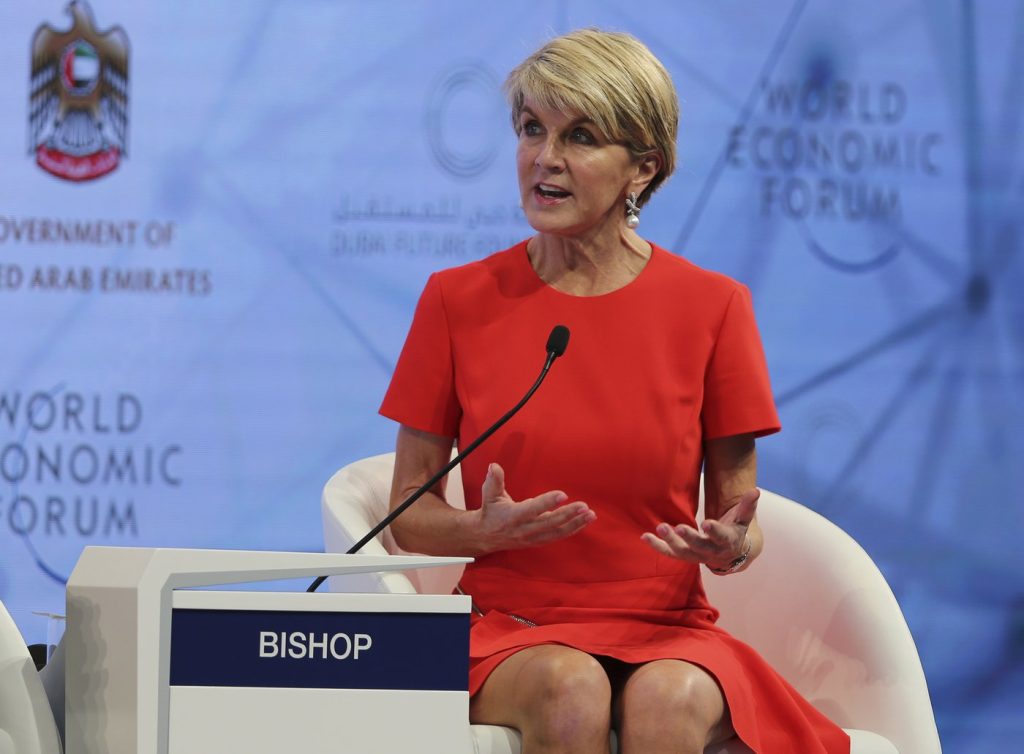BANGKOK (AP) - The U.N. special envoy for Myanmar, Julie Bishop, made her inaugural visit to the military-ruled nation since her appointment last year, meeting with the country's Foreign Minister Than Swe on Wednesday. This visit comes in the aftermath of a devastating earthquake that has left more than 3,600 people dead, necessitating discussions on humanitarian aid coordination for those affected.
The meeting took place at a temporary tented facility outside the foreign ministry's damaged offices in Naypyitaw, the capital that experienced significant destruction from the 7.7 magnitude earthquake on March 28. Myanmar’s MRTV state television reported that the quake has severely impacted six regions and states, causing extensive damage and disrupting power, communication, and infrastructure amidst an ongoing civil conflict.
According to Maj. Gen. Zaw Min Tun, a spokesperson for the military government, the current death toll from the earthquake has reached 3,649, with 5,018 individuals injured and 145 missing. The disaster has led to the destruction of nearly 49,000 houses, over 3,000 Buddhist monasteries and nunneries, along with extensive damage to schools, governmental buildings, and infrastructure, as reported by the state-run Global New Light of Myanmar newspaper.
During her discussions with Myanmar officials, Bishop emphasized the importance of coordinating humanitarian efforts between Myanmar and the United Nations for the quake-affected population, although specific plans were not disclosed. Bishop, a former Australian foreign minister and current chancellor of the Australian National University, was appointed as Secretary-General Antonio Guterres' envoy to Myanmar in April of the previous year.
Bishop's appointment faced criticism last month when a group opposing military rule in Myanmar alleged that she had business ties with Chinese companies influential in Myanmar, suggesting a potential conflict of interest. However, Bishop denied any wrongdoing. China, alongside Russia, is a primary supporter of the military regime, while many Western nations impose sanctions for the military's overthrow of a democratically elected government and serious human rights abuses.
Guterres remarked that Bishop's visit would "reinforce the UN’s commitment to peace and dialogue." Although unilaterally declared ceasefires were announced by both the military government and its armed opponents to facilitate relief efforts, reports from independent Myanmar media indicate that conflict persists in various regions.
Since the military coup in February 2021 that ousted Aung San Suu Kyi's elected government, Myanmar has been engulfed in turmoil, characterized by violent crackdowns on anti-government protests. This unrest has led to many citizens taking up arms against the military. According to the U.N., the humanitarian situation was already critical before the earthquake, with over three million people displaced by ongoing conflict and approximately 20 million needing assistance.
The U.N. Office for the Coordination of Humanitarian Affairs reported that over 17.2 million people in affected areas now require urgent food, water, healthcare, cash assistance, and emergency shelter. It remains unclear if Bishop will have the opportunity to meet with Senior Gen. Min Aung Hlaing, the head of the military government, or Aung San Suu Kyi, who is currently imprisoned and serving a 27-year sentence following politically motivated trials. The military regime has consistently denied Suu Kyi access to outside visitors, including representatives from ASEAN.
As the situation in Myanmar remains dire, Bishop's efforts and discussions with the military officials may play a significant role in shaping international responses to the unfolding crisis and support for the affected populations.










